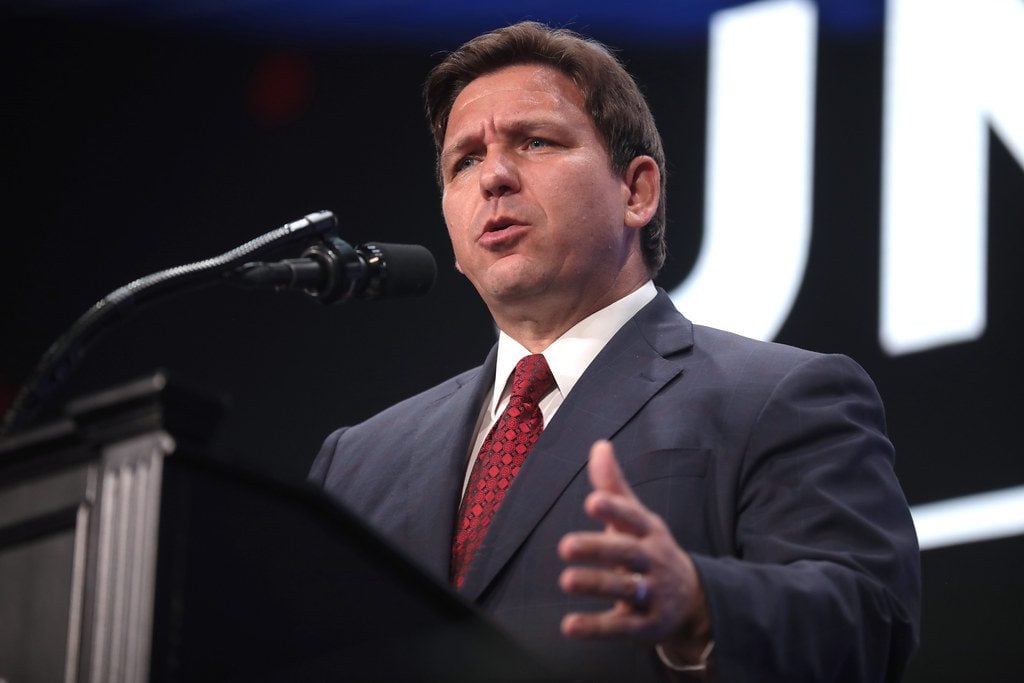After advocacy groups such as the NAACP sued claiming Florida’s voter registration process was just too strict, a federal judge said that it is not.
On Monday, Judge Allen Winsor of the U.S. District Court for the Northern District of Florida approved a motion to dismiss a case that challenged Florida’s signature requirement, according to Florida’s Voice.
Groups including the NAACP and Vote.org, filed the lawsuit.
The groups sought to throw out parts of the Florida law they felt contradicted what’s known as the Materiality Provision of federal civil rights law saying state laws should not use “immaterial errors or omissions to deny the right to vote.”
Providing “original signatures” was restrictive and also disenfranchising, the groups claimed.
Winsor, an appointee of former President Donald Trump, said not all signatures are equal.
”Plaintiffs’ entire premise is that a copied, faxed, or otherwise non-original signature is equal in stature to an original, wet signature. But we know this not to be so,” Winsor wrote in his ruling.
“Plaintiffs do not contend that the Department of Highway Safety avenue is unlawful, and they say they do not challenge the requirement for a signature generally. Their only contention is that for voters lacking a ‘signature transmitted by the Department,’ the requirement for an ‘original’ signature is too much,” he wrote.
“In Plaintiffs’ view, federal law requires states to accept photocopies, facsimiles, electronic checkmarks, or something other than an original signature,” he added.
Winsor said that the section of federal law cited in the lawsuit did not, in fact, allow such signatures and that the law cited by the NAACP and its supporters and also said the law was not intended to focus on race.
“The real question is whether Plaintiffs have alleged facts plausibly showing that the wet-signature requirement is immaterial. They have not,” he stated.
“Plaintiffs’ entire premise is that a copied, faxed, or otherwise non-original signature is equal in stature to an original, wet signature. But we know this not to be so,” Winsor wrote, citing a prior court ruling that said, “Physically signing a voter registration form and thereby attesting, under penalty of perjury, that one satisfies the requirements to vote carries a solemn weight that merely submitting an electronic image of one’s signature via web application does not.”
“It is true that times are changing and that electronic signatures are acceptable in situations they once were not,” he wrote. “But the acceptance of electronic signatures in certain circumstances does not render the wet signature requirement immaterial in this circumstance.”
The ruling gave those fighting the law 14 days to oppose having the lawsuit dismissed.
In a filing in response to the Department of Justice’s effort to support the NAACP against Florida, Secretary of State Cody Byrd said that the federal government’s position was wrong.
“The Plaintiffs and the United States’ position boils down to this: If a litigant can propose a different way to provide the same material information, then compliance with the means chosen by the State is immaterial. Under that interpretation, however, a state has no discretion to select the method by which material information must be provided,” he wrote.
“The State has decided that the oath or affirmation should be made in the form of an original signature. There are good reasons for that choice,” he wrote.
“Indeed, the writing of a signature by hand not only furnishes information, but also is a solemn act — an act that for centuries has signified an individual’s assent and affirmation. The Materiality Provision was intended to do away with requirements that unjustly deny the ballot to eligible voters — such as a requirement to calculate the number of days and months in a voter’s age. … It was not intended to deny states the freedom to ask applicants to sign their applications, even by hand,” he added.
This article appeared originally on The Western Journal.

